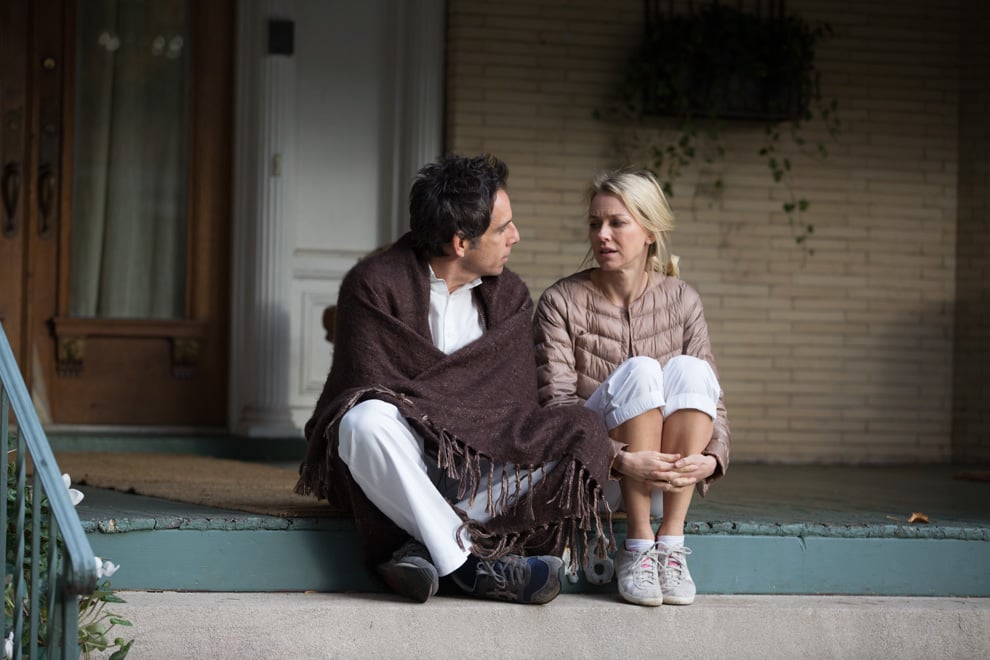Noah Baumbach’s “While We’re Young” is the story of Josh (Ben Stiller) and Cornelia (Naomi Watts), a couple stuck in a rut. He is a documentarian who has been working on the same project for years, she is a film producer. And, with time, both of them have settled into rote habits of middle-class, middle-age complacency – they don’t travel, they don’t have many friends and they haven’t found satisfaction in their jobs in years. Into this rut steps the aspiring filmmaker Jamie (Adam Driver) and his wife Darby (Amanda Seyfried) — hip, hipster, twenty-something New Yorkers who possess all the vitality that Josh and Cornelia lack. In no time, Josh and Cornelia bond with this younger couple and begin to act like the twenty-somethings they aren’t. If this sounds like a broad, even cliche-ridden, comedy, it’s because Baumbach’s excellent “While We’re Young” is quite possibly the young writer-director’s most accessible and exoteric work to date.
I do not say this lightly. Despite opening with an Ibsen quote, this is a film that traffics in simple observations about modern cellphone usage, faux hipster spiritualism and the failures of the forty year-old body. But “While We’re Young” pushes and plays with these broad observations, trying to understand the emotions behind the clichés of the central generational divide and upending these stereotypes when it finds that they no longer apply.
Take the scene where Josh and Jamie talk about joining Facebook. We are conditioned to believe that Josh as the elder will be confounded by this new technology, while Jamie will support Facebook. But it is Josh who argues for the inherent value of Facebook. Josh believes that Facebook has allowed him to keep in touch with the people that he might not be able to otherwise (a sign of his busy and unengaging adult life), while Jamie (a hipster, bohemian Brooklynite par excellence), shuns Facebook for not being about “real” connections or friendships.
And this discussion on Facebook is indicative of how the movie views its two protagonists. Josh has moved through life linearly — a product of an era when progress was inevitable, where objects from the past needed to be sacrificed for objects from the future. Jamie, on the other hand, is a creature unmoored from time: He feels free to adopt the clothing, sayings and culture from any time period, yet he is incapable of understanding genuine emotional attachment.
The trick that makes “While We’re Young” such an effective film is that it lets these deeper observations and feelings about how technology and culture have created two highly divided generations exist side-by-side with simpler jokes and pratfalls – allowing Baumbach to produce a movie that is both profound and understandable, joyful and deep.
While Baumbach focuses on juxtapositions of age and lifestyle, he never ignores how the characters feel about these distinctions. Josh and Cornelia may act foolish, and, at times, even selfish, but when they both reach their emotional breaking points, the film doesn’t undercut their feelings with an ill-timed joke. When Josh realizes with horror that he and Jamie have completely different artistic and ethical views, he gets to make his point without the film taunting him. In the scene where Josh and Jamie have their final confrontation, Ben Stiller expresses an emotion he hasn’t throughout the film – sadness. After an entire film spent playing exasperation or sarcasm, he finally tears up, and it is incredibly effective. “While We’re Young” might mock the foibles of its protagonists, but it is never cruel to them.
After years of making movies that could be highbrow or caustic, Baumbach has decided to make a truly crowd-pleasing work – something capable of being enjoyed both as delightful romp and a thoughtful meditation on aging, legacy and youth.
Contact Raymond Maspons at raymondm ‘at’ stanford.edu
